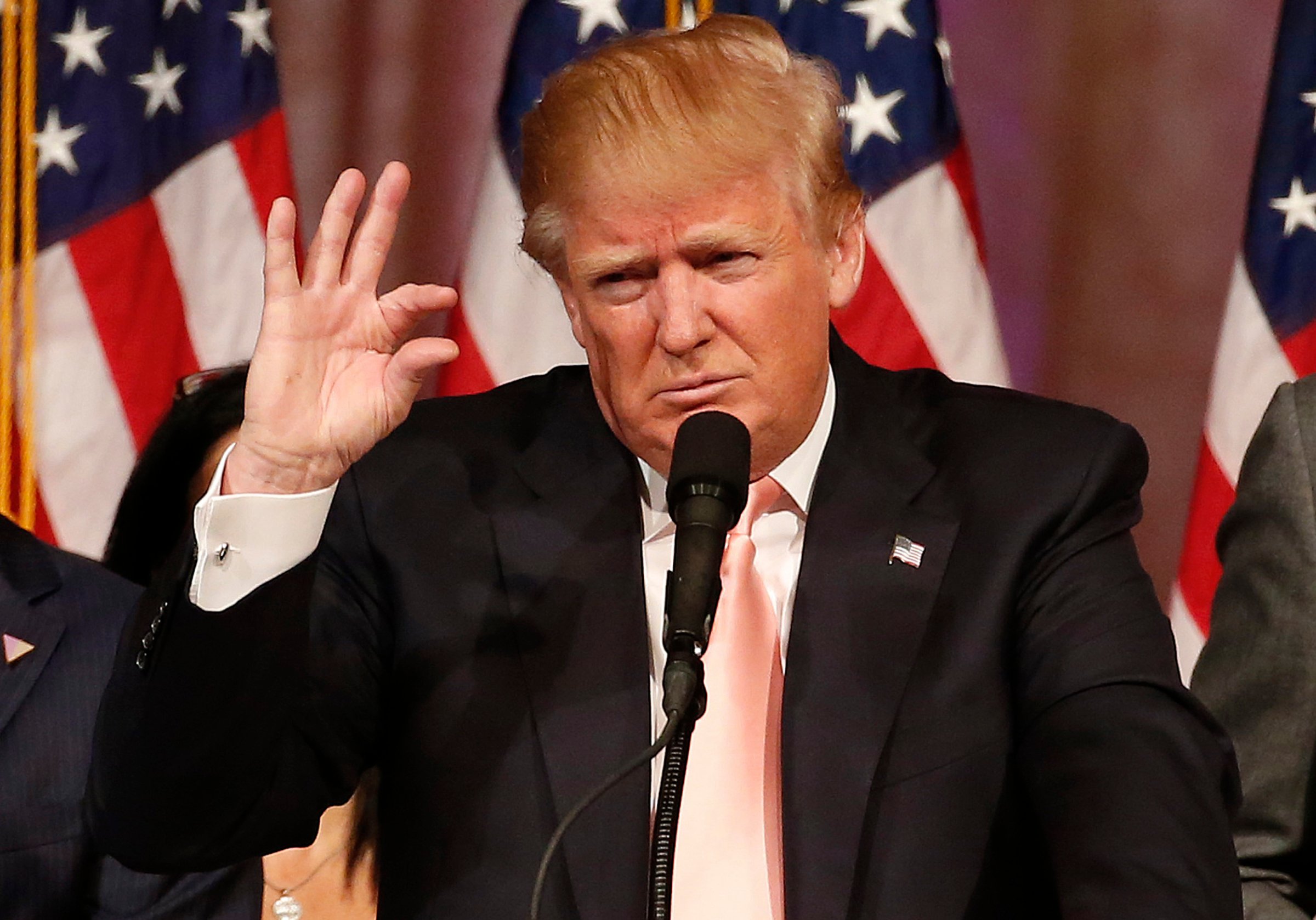
I’m not the first person to point out that Donald Trump embodies extreme masculinity. Although Ivanka Trump said Tuesday that her father “believes in inspiring women and empowering women,” he’s repeatedly made misogynistic comments about women, including Megyn Kelly, Hillary Clinton and Arianna Huffington. He’s also commented about his “hand size” during a debate, and he’s downplayed the seriousness of the the violence happening at his rallies.
But as editor of the journal Psychology of Men and Masculinity, I can offer unique insight on the impact Trump’s actions have on others—boys and men in particular.
The troubling thing to me about his actions—and the fact that they’re happening on a national stage—is that they effectively normalize a form of masculinity that is unhealthy. It gives voice to not only misogyny and sexism but also racism. Furthermore, Trump is championing traditional gender roles, and that means we’re likely to see a resurgence of them.
The research is pretty clear: This particular form of masculinity—we call it toxic masculinity—is psychologically unhealthy. Toxic masculinity is marked by this idea that men have to be the alpha male in all situations and that they’re not supposed to be emotional or affectionate—even with intimate partners in their lives. Some men express anger and rage because those are the only normalized forms of emotions for them. Any expression of compassion, therefore, may feel scary because that kind of emotion is deemed not “masculine.”
Read more: This Campaign Encourages Women to Withhold Sex From Trump-Supporting Partners
A woman’s role in this gender expectation is to be submissive or subservient so that a man can play his dominant role. Women who deviate from this are often demeaned and labeled as lesbians, as sexually unattractive or as frigid—those kinds of terms. Not because that’s actually true, of course, but because they’re straying from the roles prescribed for them.
Women obviously suffer from these expectations, but men and boys suffer, too.
Boys who are surrounded by toxic masculinity are socialized to avoid feelings and weaknesses—in themselves and in their peers. So in some ways, boys are constantly fighting within themselves about how they want to be internally versus what’s expected of them—and that increases their overall psychological stress.
Read more: What You Can Do About Donald Trump’s Bullying
To compound the issue, the best way to relieve stress is through connecting with other people and having healthy relationships—yet toxic masculinity leaves a very narrow way people are supposed to relate to each other, which perpetuates the problem.
Trump will not be the last prominent figure to embody toxic masculinity. However, we need to remember that there are positive ways to be a man and to be masculine. We need to help boys and men understand that being caring and compassionate is healthy. Importantly, we need to give them language to name their feelings and emotions. For many men, it is important to find mental health support that allows them to explore their own history of traumatic socialization and how to better connect with people in their lives. And I worry that under a Trump presidency, finding and getting this kind of support will only become more difficult.
William Liu is a professor of counseling psychology at the University of Iowa.
More Must-Reads from TIME
- Cybersecurity Experts Are Sounding the Alarm on DOGE
- Meet the 2025 Women of the Year
- The Harsh Truth About Disability Inclusion
- Why Do More Young Adults Have Cancer?
- Colman Domingo Leads With Radical Love
- How to Get Better at Doing Things Alone
- Michelle Zauner Stares Down the Darkness
Contact us at letters@time.com